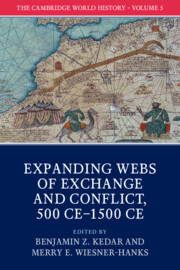Book contents
- The Cambridge World History
- The Cambridge World History
- The Cambridge World History
- Copyright page
- Dedication
- Contents
- Figures
- Maps
- Table
- Contributors
- Preface
- 1 Introduction
- Part I Global developments
- 2 Humans and the environment: tension and co-evolution
- 3 Women, family, gender, and sexuality
- 4 Society: hierarchy and solidarity
- 5 Educational institutions
- 6 Warfare
- Part II Eurasian commonalities
- Part III Growing interactions
- Part IV Expanding religious systems
- Part V State formations
- Index
- References
5 - Educational institutions
from Part I - Global developments
Published online by Cambridge University Press: 05 May 2015
- The Cambridge World History
- The Cambridge World History
- The Cambridge World History
- Copyright page
- Dedication
- Contents
- Figures
- Maps
- Table
- Contributors
- Preface
- 1 Introduction
- Part I Global developments
- 2 Humans and the environment: tension and co-evolution
- 3 Women, family, gender, and sexuality
- 4 Society: hierarchy and solidarity
- 5 Educational institutions
- 6 Warfare
- Part II Eurasian commonalities
- Part III Growing interactions
- Part IV Expanding religious systems
- Part V State formations
- Index
- References
Summary
- Type
- Chapter
- Information
- The Cambridge World History , pp. 116 - 144Publisher: Cambridge University PressPrint publication year: 2015



